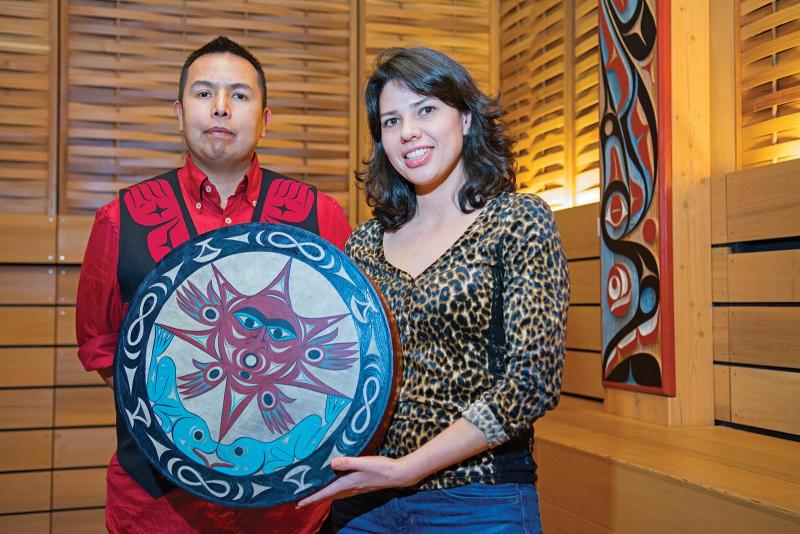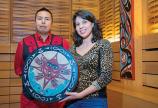Bringing Indigenous knowledge to counselling
- Kim Westad

Lindsay Delaronde’s plans are as big as they come: she wants to take what she’s learning in Canada’s first Indigenous master’s degree program around the world.
The 29-year-old woman from the Mohawk Nation in Quebec is one of 14 students taking part in the University of Victoria program—the first in the country to offer a master’s degree in Indigenous Communities Counselling, leading to provincial and national certification.
The UVic-led and developed program provides coursework consistent with national counsellor education guidelines and certification requirements for professional counsellors, but is grounded in Indigenous approaches to the world. It will include courses in spirituality and healing, counselling across generations, and instruction on the importance of ceremony, language and communal healing.
Delaronde said she wanted to work with Indigenous communities with Indigenous ways of knowing. She also sees taking that knowledge to people anywhere.
“It is ancient knowledge that influences not only Indigenous people but people around the world,” Delaronde explains. “The more knowledge counsellors have of others, the more we can help people of all diversities.”
Education professor Anne Marshall co-chaired the initial advisory committee that led to the program, along with Dr. Lorna Williams. For years, Williams, the Canada Research Chair in Indigenous Knowledge and Learning, had heard about and seen certified counsellors arrive in Indigenous communities without knowing how to work effectively and respectfully with Aboriginal clients. Williams wanted to change that.
After extensive consultation with faculty, mental health professionals and Indigenous community members, the master’s program was developed. It is delivered by the Department of Educational Psychology and Leadership Studies, in partnership with Indigenous Education.
A pilot program saw 19 students graduate with master’s degrees in 2011 and 2012. Delaronde is part of a new group that began classes in late January. The three-year program takes place on weekends, so students don’t necessarily have to leave home full-time.
Classes take place mostly in First Peoples House on campus, with fieldwork done in the community as well. A 400-hour practicum is also part of the comprehensive program.
On the first day of classes, the 14 students and Assistant Professor Roger John, academic advisor for the program, sat in a circle around several drums, stones and artifacts.
John, a member of the St’at’imc Nation, asked students to bring whatever they would like from their homes to share with others. While the majority of students are Indigenous, they are from different Nations, so there’s a wide range of practices they learn from each other.
Those differences add another dimension to the program, said Delaronde, whose Mohawk name Katsitsakatste means “Lasting Flower.”
“I have a lot of similarities with people here but also a lot of differences. We can all learn from those.”
John said the impact of colonization is still felt in the Indigenous community, including poverty and post-traumatic stress disorder. There is also great strength, he said, and counselling psychology is one of the best ways to access those strengths.
Delaronde says combining the positives of both the Indigenous and western worlds is an alliance that can extend to many areas.
“I think there is a resurgence of unity, where people are coming together to recognize that we have a huge amount of knowledge when we work together,” she says. “To have it supported in an educational institution and have it then infiltrate the community—I’m really glad to be a part of that happening.”

